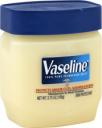By Dr. Cheryl Hull, dermatologist and owner of Hull Dermatology
My cell phone rang Saturday morning, and a patient I know well was calling distressed. She had been, in her words, “loving on her grandchild,” and had later begun to develop a cold sore on her lip. She was very concerned that she might have passed the virus on to her grandchild and had in some way harmed this child. I gave her some advice that included washing her grandchild’s face with soapy water, frequently  washing her hands when around her grandchildren, and applying a greasy ointment like Vaseline to provide a barrier. That phone call gave me inspiration for this article!
washing her hands when around her grandchildren, and applying a greasy ointment like Vaseline to provide a barrier. That phone call gave me inspiration for this article!
Fever blisters or cold sores are tiny, clear, fluid-filled blisters caused by the Herpes Simplex virus. The lesions most often occur on the face. They can be very annoying as they may reappear periodically and can be painful and unsightly. There are two kinds of infections — primary and recurrent. Although most people get infected when exposed to the virus, only 10 percent will actually develop sores. The sores of a primary infection appear two to twenty days after contact with an infected person and can last from seven to ten days.
Before the blisters appear, a person can have symptoms including skin that itches, stings, burns or tingles. The blisters tend to break, allowing the fluid inside the blisters to ooze and crust. Eventually, crusts fall off, leaving slightly red healing skin.
The sores from the primary infection heal completely and rarely leave a scar. However, the virus that caused the infection remains in the body. It moves to nerve cells where it remains in a resting state. People may then have a recurrence either in the same location as the first infection or in a nearby site. The infection may recur every few weeks or not at all. Recurrent infections tend to be mild. They can be set off by a variety of factors including fever, sun exposure, a menstrual period, trauma (including surgery), or nothing at all.
If a person has a tendency to develop cold sores, treatment recommendations include moisturizing one’s lips to avoid cracks in the skin and wearing zinc oxide containing chapstick when out in the sun. Sunlight lowers the immune system of the skin, and, if a sunburn occurs, it can reactivate the virus. Most importantly, when a person first notices signs of a recurrent eruption, treatment with a prescription antiviral medication, such as acyclovir, valacyclovir or famciclovir, helps. The antiviral medication can lessen the length of the outbreak and can decrease the number of outbreaks.
If you have concerns about cold sores, be sure to see a dermatologist to get more information about treatment and how to prevent transmission of the virus. This virus is manageable and having the right information is a huge help.
For more info on dermatology-related issues, contact Dr. Hull by calling her office at 479-254-9662. “Beauty Buzz” is sponsored by Hull Dermatology, with offices in Rogers, Bella Vista and at the Eureka Springs Hospital. Dr. Hull has published several scientific papers and has received numerous awards and honors for her work in dermatology. For more info, click here to visit the Hull Dermatology website.
